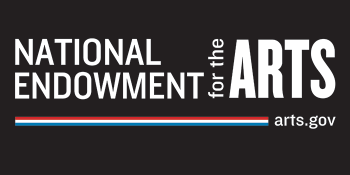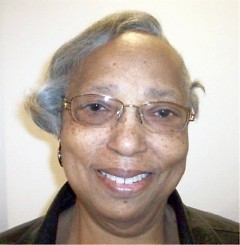Written by Joyce Conley, Foster Care Licensing & Recruitment
The new decade of 2010 has brought about the start of a celebration of exceptional women. Dr. Malinda Sapp began what is to be known as the Trench Award. “This award,” says Dr. Sapp, “is to commemorate and acknowledge women who travail yet prevail through life. These women should be known and praised for their ability to stand strong in the face of adversity and not give up, but endure by making it through.” Dr. Sapp developed this award after going through her own personal struggles and accomplishments over and beyond adversities.
With that being said, our very own Parent Therapist, foster parent Mrs. Mary Grady was nominated for a Trench Award, and won! There are many women who have fostered children with D. A. Blodgett-St. John’s who are deserving of awards, but the story of Mary Grady is phenomenal, inspiring and courageous. Mrs. Grady, a mother of five biological daughters began fostering children in the 1970s. Mary, although struggling with unknown medical problems at the time, looked past her own physical pain and limitations and provided a home for children in need.
As Mary disclosed intense information of her life to me, she smiled as she recounted the birth of her children and as she discussed the arrival of a foster child to her home. Mary struggled with the births of all five of her biological children. In 1960, the birth of her first child initiated the triggers of medical concerns. During that time, the doctor did not and could not diagnose the cause of her physical aliments. Mary, though riddled with pain and blotches over her skin and achy joints, wanted a son and did not allow her medical conditions to dictate her life. Mary and her husband Jake continued to have children and Mary began caring for other children in her home. She began with childcare, providing a safe haven for children after school and while their parents worked, Mary ensured the children were fed, clean and nurtured during their time in her care. She cared for children in her home for friends and family who worked and needed childcare services.
During the interview with Mrs. Grady, she explained how she cared for her children and her three best friends’ children due to the need for childcare. “There were times when the pain was so bad I had to crawl to care for my own children and the children in my home. I refused to allow anything to stop me from being a good mother. I knew my strength was with God and He allowed me to keep going.” Mary continued caring for children and after the birth of her third child she fell into a coma. It was frightening for the family, but Mary pulled through and continued with her life’s mission: children.
In 1965, Mary gave birth to her fourth child and during the time in the hospital she met a Dutch woman who had also given birth to a child. This woman had the son that Mary longed for. Mary and this woman became friends. Mary offered the Dutch woman support and a place to live, because she had no family or friends in the area and her situation was very difficult. Due to this woman’s circumstance, Mary offered her and her son a home to come to and that relationship flourished. The Dutch woman was not in a position to maintain her child in a safe and healthy environment, so Mary offered to adopt the son. The Child Welfare System denied the adoption because of Mary’s medical issues. Mary and the Dutch woman remained friends and the woman placed her son for adoption with another family. Mary explained, “I always wanted a son, my family was not complete without one.” In 1969 the final try for the son resulted in Mary giving birth to another daughter, which she continues to love and cherish as she has all her children. Mary had her tubes tied after the birth of her last child based on doctors’ recommendations due to her declining health.
Mary, weak from medical ailments, continued to care for her own children, monitored a daycare in her home, cooked and cleaned. In 1970, Mary found herself back in the hospital with no idea of the source of her pains. Doctors began prescribing steroid injections to help with the pain in her joints. Mary felt some, but little relief. Mary recalled, “It must have been around 1971 or 1972 that I became so ill, I could no longer walk, my skin hurt and there was no relief.” Mary said that she went to Dr. Williams, a doctor in Ann Harbor, who could not find the source to her pain or illness. Dr. Williams sought out a doctor by the name of Dr. Washington. Mary could not remember where Dr. Washington was from. She stated, “That doctor took one look at me, then told Dr. Williams, I had Lupus.”
Mary and Jake fostered many teenagers over the years, but in 1996 Mary got what she likes to call, “her son.” Lucas became a part of Mary and Jake’s family and continues to be the son she never had. Mary recalled, “Lucas and I had a conversation one day and he said he did not want to be adopted. He also said, mom we don’t need a piece of paper to say that I am your son.” With that, Mary expressed, “he was and is my son and we (Jake and the daughters) love him as if he is ours.
”The Gradys continue to foster teenage boys to this day. The Lupus that once plagued Mary’s life so long ago has been in remission for over 15 years and she has never allowed it to dictate her life. Through all the trials and tribulations, Mary Grady has demonstrated a willingness to live life to the fullest. She overcame many obstacles and she is a true Trench Award recipient. Here’s to the travailing yet prevailing through it all. Congratulations to Mary and may she continue to be blessed.
The Rapidian, a program of the 501(c)3 nonprofit Community Media Center, relies on the community’s support to help cover the cost of training reporters and publishing content.
We need your help.
If each of our readers and content creators who values this community platform help support its creation and maintenance, The Rapidian can continue to educate and facilitate a conversation around issues for years to come.
Please support The Rapidian and make a contribution today.

